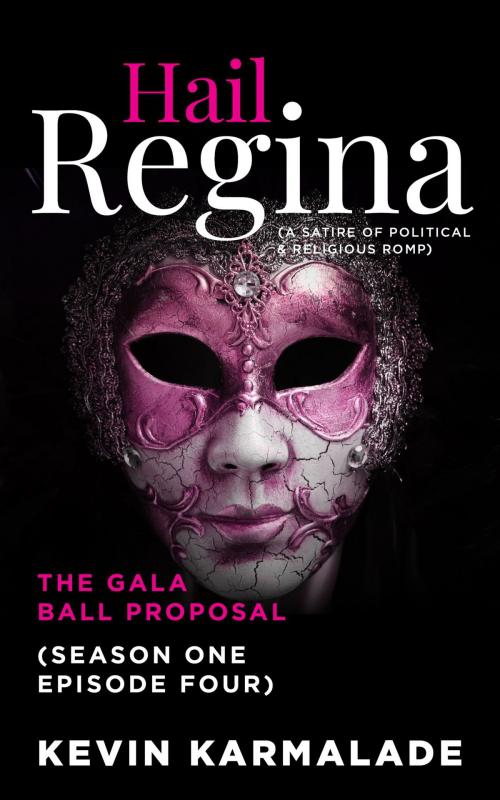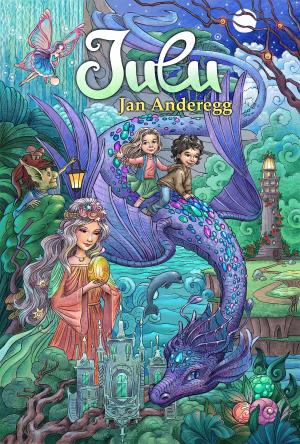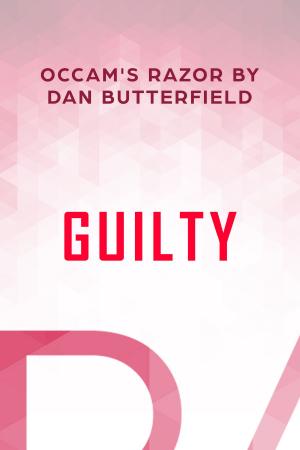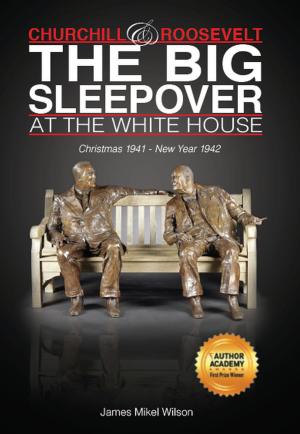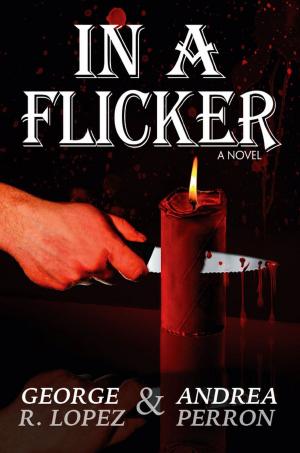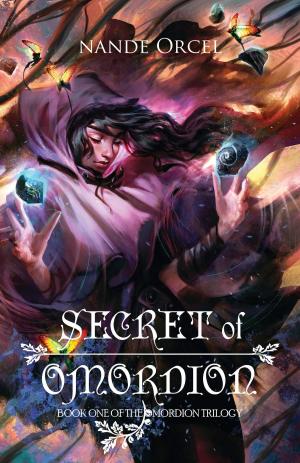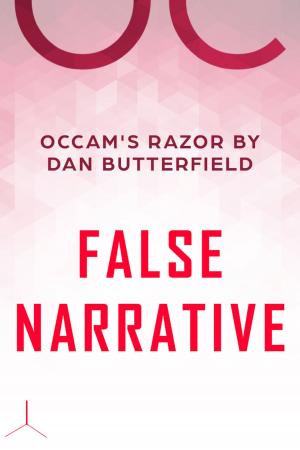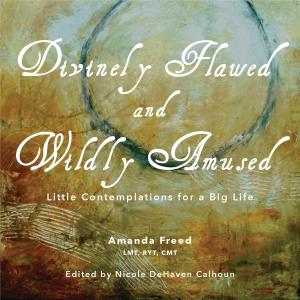The Gala Ball Proposal
SEASON ONE - EPISODE FOUR
Fiction - YA, Dystopia, Kids, Teen, Dystopian, Fiction & Literature| Author: | Kevin Karmalade | ISBN: | 9781642376340 |
| Publisher: | Gatekeeper Press | Publication: | May 8, 2019 |
| Imprint: | Gatekeeper Press | Language: | English |
| Author: | Kevin Karmalade |
| ISBN: | 9781642376340 |
| Publisher: | Gatekeeper Press |
| Publication: | May 8, 2019 |
| Imprint: | Gatekeeper Press |
| Language: | English |
In this episode, readers are asked to regress some eighteen months back into 2025, into the lead-up to a Gala Ball. Sir Perceval Lamb attends a meeting at St. Dandy’s Cathedral, where he applies to hire the Old Vestry as a venue—for his charity event. He must first obtain Archbishop Garibaldi’s permission. The character, ‘Kevin Karmalade’ enters the scene for a short cameo: one of several guises he will have through the series. In this scene he has been rostered on as a temporary under-butler.
Perceval Lamb and Dirk are shown into the rectory. Lamb puts his proposal to the archbishop. Dirk accompanies Lamb, as part of his training. The reader becomes aware Archdeacon Alfonso may also be ‘in’ on Lamb’s unusual charity arrangements. In the room, exotic deacon-servants serve dinner to Lamb, Dirk, Garibaldi and Alfonso. The archbishop and Lamb 'chortle' together as the archbishop slurps his peacock stew.
Before Garibaldi will allow Lamb to hire the most prestigious heritage venue in the state, he interrogates Lamb politely. Lamb attempts to win favour with Garibaldi, by showing him secret documents, smuggled out of the Dominus Regis. They are the equivalent of cabinet papers, which the archbishop is keenly interested in. Although Garibaldi has a moral choice not to take or read them, he doesn’t hesitate to digest them. The Gala Ball is approved so that preparations can be commenced.
This tongue in cheek episode uses a language and tone that is a throwback to traditional drawing-room scenes of the Victorian era. The Regina series to a limited extent, borrows elements of language from that era. It's placed with restraint and gives the scene a subtle sepia or vintage feel. Karmalade’s admiration for writer, Evelyn Waugh (1903-66) is apparent in his writing style and choice of words. Both writers have an affinity for words in and of themselves. Even allowing at times, words to take precedence over the insights and movements of the characters.
About the Author
This is Kevin Karmalade's debut novella series. The 'Hail Regina' series will consist of 6 novella's (with 6-8 episodes per season). Karmalade sees Hail Regina as predominantly a vintage-style, theatrical satire. The work does not set out to mirror societal dysfunction or hypocrisy in the strong way - as some of the classic dystopian novels did in the past. Rather, Hail Regina should be understood primarily as a modern entertainment fiction set within the genre. It is written to entertain above all else.
Karmalade may be regarded as a mischievous, playful storyteller. A ‘jester’ of sorts, who reels us in with a simple story - then sometimes holds a mirror to our face. The writer is aware that on some level, the work naturally touches upon the obvious flaws of humanity. The theme of human liberation and freedom in literature is familiar to most. This serialized tale then, does not try to break new thematic ground. It does however present readers of all ages (from 14+) this classic theme, in an opaque, but contemporary and engaging way.
In this episode, readers are asked to regress some eighteen months back into 2025, into the lead-up to a Gala Ball. Sir Perceval Lamb attends a meeting at St. Dandy’s Cathedral, where he applies to hire the Old Vestry as a venue—for his charity event. He must first obtain Archbishop Garibaldi’s permission. The character, ‘Kevin Karmalade’ enters the scene for a short cameo: one of several guises he will have through the series. In this scene he has been rostered on as a temporary under-butler.
Perceval Lamb and Dirk are shown into the rectory. Lamb puts his proposal to the archbishop. Dirk accompanies Lamb, as part of his training. The reader becomes aware Archdeacon Alfonso may also be ‘in’ on Lamb’s unusual charity arrangements. In the room, exotic deacon-servants serve dinner to Lamb, Dirk, Garibaldi and Alfonso. The archbishop and Lamb 'chortle' together as the archbishop slurps his peacock stew.
Before Garibaldi will allow Lamb to hire the most prestigious heritage venue in the state, he interrogates Lamb politely. Lamb attempts to win favour with Garibaldi, by showing him secret documents, smuggled out of the Dominus Regis. They are the equivalent of cabinet papers, which the archbishop is keenly interested in. Although Garibaldi has a moral choice not to take or read them, he doesn’t hesitate to digest them. The Gala Ball is approved so that preparations can be commenced.
This tongue in cheek episode uses a language and tone that is a throwback to traditional drawing-room scenes of the Victorian era. The Regina series to a limited extent, borrows elements of language from that era. It's placed with restraint and gives the scene a subtle sepia or vintage feel. Karmalade’s admiration for writer, Evelyn Waugh (1903-66) is apparent in his writing style and choice of words. Both writers have an affinity for words in and of themselves. Even allowing at times, words to take precedence over the insights and movements of the characters.
About the Author
This is Kevin Karmalade's debut novella series. The 'Hail Regina' series will consist of 6 novella's (with 6-8 episodes per season). Karmalade sees Hail Regina as predominantly a vintage-style, theatrical satire. The work does not set out to mirror societal dysfunction or hypocrisy in the strong way - as some of the classic dystopian novels did in the past. Rather, Hail Regina should be understood primarily as a modern entertainment fiction set within the genre. It is written to entertain above all else.
Karmalade may be regarded as a mischievous, playful storyteller. A ‘jester’ of sorts, who reels us in with a simple story - then sometimes holds a mirror to our face. The writer is aware that on some level, the work naturally touches upon the obvious flaws of humanity. The theme of human liberation and freedom in literature is familiar to most. This serialized tale then, does not try to break new thematic ground. It does however present readers of all ages (from 14+) this classic theme, in an opaque, but contemporary and engaging way.
